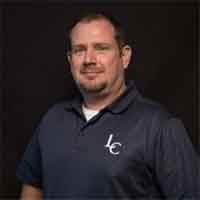Meet the Expert: John R. Kok, MS

J.R. Kok is an associate professor and manages the heating, ventilation, air-conditioning, and refrigeration (HVAC/R) Technology Program at Lewis-Clark State College. His program offers several options for HVAC/R apprentices to become Journeymen.
Kok has worked in the HVAC/R field for 30 years, holding a contractor’s license in Florida and a journeyman’s license in Idaho. He earned a two-year technical degree in commercial HVAC/R at Pinellas Technical Education Center in Florida, and an MS in adult organizational learning and leadership from the University of Idaho. Since 2016, he has served as chair of the SkillsUSA Idaho State Leadership and Skills Conference (SLSC) HVAC Competition. In 2021, he was awarded the Lewis-Clark State College Foundation Award.



